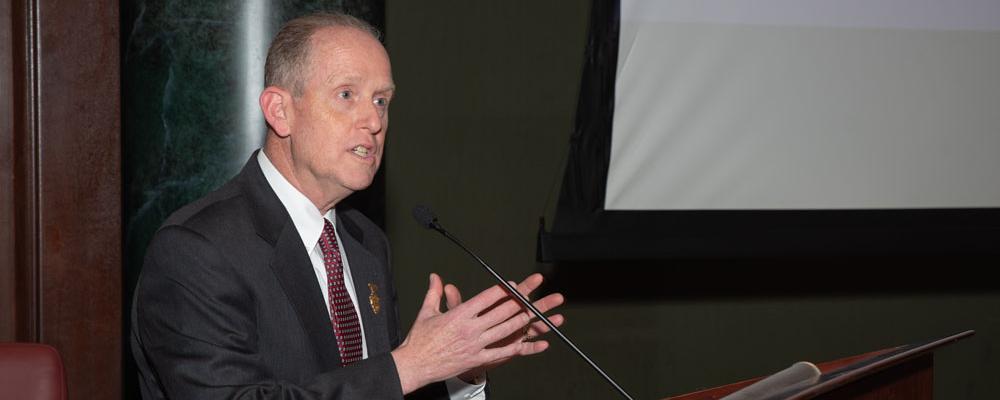
NGAUS has a legislative resolutions process that has served our association well for decades. More importantly, it has played a big role in strengthening the readiness, effectiveness and quality of life of the National Guard.
The process is an annual cycle that starts with the new year. It involves many stakeholders, including the state associations and industry. Even the National Guard Bureau weighs in. However, our most important stakeholders are our members.
Our annual conference also plays a major role. This is where representatives from all 54 states, territories and the District of Columbia debate the resolutions and send their recommended package to the floor for final consideration by conference delegates.
Credit for illuminating the problems with the federal-recognition process goes to our company-grade officers.
The results become the basis of the next year’s legislative action plan. They typically run the gamut: equipment modernization, improved training, personnel matters and benefits.
Some prioritization is required. You simply can’t go to Capitol Hill with a list of 200 things. The NGAUS officers, staff and the association’s issue-oriented task forces handle that. Top priorities are usually those generating the most talk across the Guard.
One recent top issue was the date of rank for Guard officers affected by delays in the federal-recognition process; which had been a legislative resolution since 2016, but significant concern about the issue was not reaching Washington, D.C.
That changed about 18 months ago and it resulted in substantive change in the timeline.
Our company-grade officers began speaking up, both via email and at events. They were not the only officers suffering, but they were the most outspoken. And their stories were more than just personal tales of woe. They were accounts of how the issue had become pervasive and was beginning to take a toll on morale.
A four-to-six-month process was taking more than a year in some cases, especially for those in the Army Guard. First lieutenants were frequently doing the jobs of captains and captains the jobs of majors for lengthy periods without the pay or the authority that comes with the proper rank.
The NGAUS staff partnered with our affected members and completed an online survey, which found the problem and associated frustration was pervasive. Internal Defense Department data obtained by the association confirmed the average Army Guard scroll (promotion confirmation) was taking nearly 300 days to move through the federal-recognition process.
That’s when addressing federal-recognition process became one of the association’s top priorities.
But company-grade officers didn’t just communicate with NGAUS. We encourage all of our members to take their stories to Capitol Hill, and to their credit, that’s what they did. The NGAUS company-grade committee also jumped in.
Together, we won the introduction of legislation, some of which was included in the fiscal 2019 National Defense Authorization Act signed by the president in August. The services must now streamline their fedrec processes and they have to inform Congress this month how they plan to do so.
Credit here goes to our company-grade officers. They spoke up ― tactfully, but also with great conviction.
We like to say company-grade officers, and this includes our junior warrant officers, are our future. But they are also critical to our present. They are also our now. They command our Army Guard companies and some of our Air Guard squadrons. These our building-block units. They also hold many of our critical staff jobs in our battalions, brigades and wings.
As the month’s magazine goes to press, there has been progress. Many of the last scrolls were confirmed in less than 180 days; however, the most recent scrolls are showing an increase.
There is clearly work left to be done and I am hopeful that the services will lead the way with their pending reports to Congress.
My hat is off to our youngest leaders. Your issues and problems are the association’s issues and problems. Thank you for your leadership.
The NGAUS chairman can be reached via [email protected].
